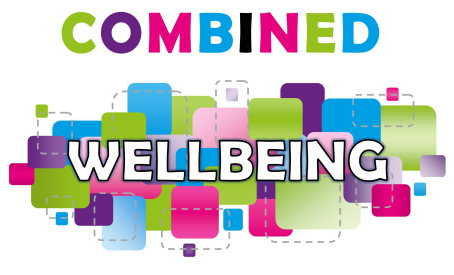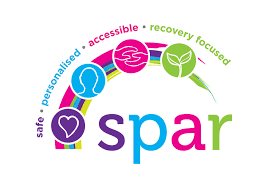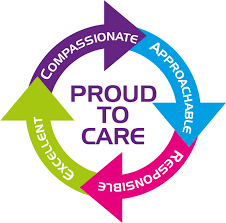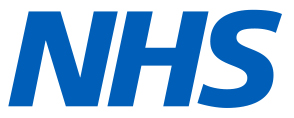Management of vascular risk

Information
Here you’ll find answers to some common questions concerning the management of vascular risk factors
Select the underlined causes below to see more.
Uncontrolled vascular risk factors increase someone’s chances of developing cardiovascular disease, memory impairment and dementia. The good news is that you may be able reduce your risks considerably. This topic will explain what vascular risks are, how risks can be modified through healthy lifestyle changes to help you improve your health and reduce your risk of memory problems and dementia.
Cardiovascular disease is a broad umbrella term used to describe all conditions affecting the heart and circulatory system, including coronary heart disease, stroke, heart attack and aortic disease.
Vascular risk factors are can be described as habits, behaviours, circumstances or conditions that increase a person’s risk of developing cardiovascular disease including lack of exercise, unhealthy eating, smoking, diabetes, age and family history.
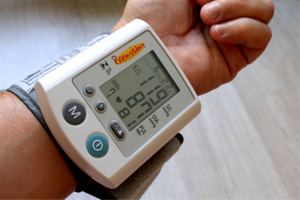 In the UK it is estimated that over 5 million people are walking around with undiagnosed high blood pressure. The only way to check your blood pressure is to have it measured.
In the UK it is estimated that over 5 million people are walking around with undiagnosed high blood pressure. The only way to check your blood pressure is to have it measured.
So, what is blood pressure?
Simply, blood pressure is the pressure the blood is under in your arteries (tubes that carry blood around your body). The pressure is there to ensure blood reaches all areas of the body.
The top reading is the pressure your arteries are under as the heart contracts, the bottom reading is when your heart is at rest before it beats again. The recommended target for blood pressure readings is below 140/90. If you have circulatory problems, diabetes or kidney problems the target changes to 130/80 but everyone’s readings are different. If blood pressure is left untreated it can cause problems with your heart or brain leading to heart attacks, stroke, and memory loss as well as kidney problems.
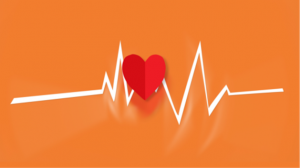
High blood pressure affects the small muscles in the arteries which affect their ability to open and close with the flow of blood. This leads to a thickening of the wall of the arteries, thicker walls mean less blood flow, this increases the chance of them becoming blocked. High pressure can lead to a weakened artery bursting. If arteries burst or become blocked the area being supplied by that artery will be deprived of nutrients and oxygen carried by the blood and become damaged.
Lifestyle changes can help greatly in reducing blood pressure readings. Even if you don’t have high blood pressure, if you are able to make some changes, this will help towards a healthier future.
Cholesterol is a fatty substance known as lipid and is essential for normal functioning. It is carried in the blood by proteins, joined together they are called – Lipoprotein.
Good and bad Cholesterol
Low Density Lipoprotein (LDL or bad Cholesterol) – this carries cholesterol from the liver to the cells that need it, if there is too much cholesterol for the cell to use it.
High Density Lipoprotein (HDL or good Cholesterol) – this carries cholesterol away from the cells to the liver where it is broken down.
Evidence strongly indicates that high cholesterol can lead to a risk of narrowing those vital arteries, leading to a build -up in the walls of the artery and restricting the blood flow.
What increases the chances of getting High Cholesterol?
- An unhealthy diet particularly having high levels of saturated fat.
- Smoking, a chemical found in cigarettes stops the good cholesterol transporting fatty deposits to the liver.
- Having diabetes or high blood pressure
- Family history of stroke or heart attack
Your doctor will be able to suggest a recommended level for cholesterol as it differs depending on medical problems. Making life style changes can make a difference to cholesterol.
 Diabetes is a lifelong condition that causes a person’s blood sugar level to fluctuate. If you have had a diagnosis of this you may have specialist care from a team who will make you aware of the changes you need to make to your lifestyle.
Diabetes is a lifelong condition that causes a person’s blood sugar level to fluctuate. If you have had a diagnosis of this you may have specialist care from a team who will make you aware of the changes you need to make to your lifestyle.
It’s important to take any advice extremely seriously and attempt to make the changes suggested as soon as possible.
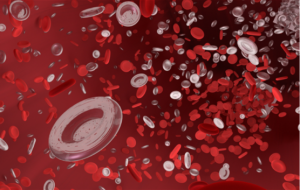
Insulin is a hormone produced in the body by the pancreas, it controls the amount of glucose (sugar) in the blood, and it moves the glucose from the blood into the cells, where it is converted into energy.
If left untreated diabetes can be the cause of many health problems. Large amounts of glucose can damage blood vessels, nerves and organs, if you have diabetes you could be five times more likely to develop heart disease or have a stroke which could then lead to memory changes.
Lifestyle changes can make a definite difference to people who have diabetes type 2.

Stress is a normal part of living our everyday life. Increased levels of anxiety can cause a release of adrenalin into the body, which in turn increases heart rate and narrows blood vessels, therefore increases blood pressure. Over a period of time blood pressure can affect the arteries supplying blood to the main organs.

High prolonged levels of perceived threat causes an increase in anxious feelings, this can also be very damaging; over time cortisol is released to help the body deal with stressful situations in an attempt to help replace the body’s natural equilibrium. However if cortisol levels are elevated for too long this can disrupt almost all of our bodies processes, putting you increasingly at risk of depression, anxiety, heart disease, sleep problem and weight gain. It’s important here to remember it’s not the event which causes the problem but your reaction to that event.

The majority of vascular risk can be controlled, treated or modified.

SMOKING
Smoking increases the risk of cognitive impairment, as well as causing other major health problems. Research shows that smoking cessation attendance can significantly reduce the major risks associated with smoking. You may have tried to quit before, don’t be disheartened it is very common for smokers to quit and relapse before finally quitting for good.
If smoking is a problem for you and you would like to quit please discuss this with your GP, nurse or pharmacist who would be happy to provide you with further support by making a referral for you to smoking cessation services.
Healthy Eating
Eating a healthy balanced diet provides the correct nutrients for your body; this gives you the energy you need and keeps your brain active. Being overweight increases your risk of developing chronic diseases, increasing vascular risks. Good nutrition lowers the risk of developing or worsening these conditions.
- Eat the correct number of calories for how active you are.
- Eat lots of fruit and vegetables – 5 or more portions each day.
- Can you increase the amount of fish in your weekly meals?
- Cut down on saturated fats and sugar
- Eat less salt
- Don’t get thirsty, we need to drink 1.2 litres of fluid each day, all non-alcoholic drinks count but be careful of calorie loaded drinks
Physical Activity
Physical exercise can help you stay healthy, energetic and independent; it has so many benefits from relieving stress to socialising and meeting new people depending on what type of exercise you choose. If you’ve not been active for a while you may want to build your fitness up very slowly, if you are unsure about starting a programme or recovering from an illness then discuss with your GP first. It’s vitally important to listen to your own body. It’s essential to ease yourself into any form of exercise and always choose something you will enjoy. Current recommendation is 150 minutes of Aerobic type exercise, such as fast walking, cycling, ballroom or line dancing each week. Muscle strengthening exercises that work the whole of the muscle groups, should be done twice a week, such as lifting light weights, moving objects when shopping and cleaning, yoga or pilates.
Alcohol
Drinking more than the recommended limits of alcohol can have a harmful effect on your heart, contribute to high blood pressure and weight gain, as well as other serious medical conditions. To keep health risks from alcohol to a low level, both men and women are advised not to regularly drink more than 14 units a week. A unit of alcohol is 8g or 10ml of pure alcohol, which is about:
- half a pint of lower to normal-strength lager/ beer/cider (ABV 3.6%)
- a single small shot measure (25ml) of spirits (25ml, ABV 40%)
- A small glass (125ml, ABV 12%) of wine contains about 1.5 units of alcohol
If you drink as much as 14 units a week, it’s best to spread this evenly over 3 or more days.
If you’re trying to reduce the amount of alcohol you drink, it’s a good idea to have several alcohol-free days each week. if you’re pregnant or trying to become pregnant, the safest approach is to not drink alcohol at all to keep risks to your baby to a minimum. Regular or frequent drinking means drinking alcohol most days and weeks. The risk to your health is increased by drinking any amount of alcohol on a regular basis.

Coping with
Top tips to cope if you have worries about the management of vascular risk factors
The following buttons are self-help suggestions

Finding help
Who can you talk to?
- Your GP
- Your clinician
Select the underlined topics below to view what resources are available.

Getting more help
If you haven’t already found the help you’re looking for, you can find additional information and services which are more interactive here.
